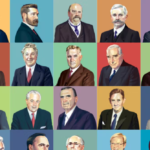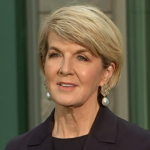Coming together as a nation
As a nation we are becoming more multicultural. Alok Ralhan urges Australians to build on common interests instead of focussing on differences that may hold us back.
I am not on board the “multicultural” bandwagon. It is a word that describes a state-of-being. Yet it has been conscripted to suggest two opposite ideas! To some it means diversity and the advantages that it brings, and to others it means difference and all the fears that come from that. And that’s the problem with multiculturalism.
As a descriptor of diversity, one can say that some nations are more multicultural than others or that (almost) all nations are more multicultural today than they were a few decades ago. That is simply the way things are for a variety of reasons, not least of which is the tremendous growth in the movement of people. And that’s where the issues about the meaning of multiculturalism start.
Looked at collectively, the world has always been multicultural. It’s just that people have lived in relatively homogenous communities or communities that were made more homogenous through war. We are hard-wired to be fearful of difference. In societies differences abound, on account of education, age, income, geography, interests to name just a few. However, the ones based on religion, ethnicity, appearance, dress codes, language, cuisine, social customs and religious conventions are easily perceived and thus acted upon. After all to overcome our visceral system 1 response to difference requires us to get our rational system 2 response into gear. And that requires effort.
Multiculturalism leads to a certain amount of natural acculturation and assimilation. Which one dominates depends on power structures and degrees of openness in communities and societies. In modern Australia, where there is an implicit acceptance of broad civic values, the relationship balance is naturally forced towards working together or at least in not forcing one set of ideas over another. It is in this setting one sees that the word multiculturalism has been recruited to amplify the benefits of diversity or the disadvantages of difference. And as a result it has lost some of its usefulness to build a stronger diverse society.
One reason for the rise of the subliminal messaging around difference is probably because the advantages of diversity were cast in a narrow frame. Sure, the ability to speak multiple languages or understand customs can be an advantage in an economic setting. But such advantages are minor (unless one is in the call centre business!) because economic success will require a lot more knowledge and skills that are not rooted in culture. Far greater advantages flow from creativity and problem solving, from an ability to communicate and to harness knowledge and skills than simply speaking a foreign language. Multiculturalism as a place holder for this narrow-framing of advantages of diversity has allowed the word to also stand for difference.
As a nation we are becoming more multicultural (literally) and we should work towards enjoying the possibilities that diversity offers by building on our common interests instead of harking on differences that may well hold us back. These are not issues of asylum seeker policy or our migration policy settings either. It is about working together, living together, coming together as a nation. It is time to find another word.
Alok Ralhan is a senior executive who is passionate about innovation, productivity and efficiency, especially in complex and ambiguous operating environments. In his current role he develops business strategies including governance structures for government and non-government organisations. He has successfully launched and managed major initiatives for the NSW Government, including leading policy initiatives to reduce regulatory burden on business. Alok is also active in promoting Australia as a place for doing business.












